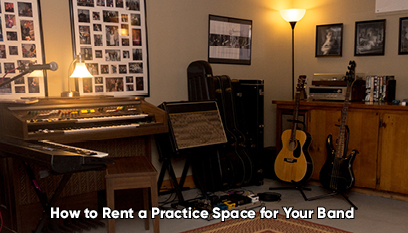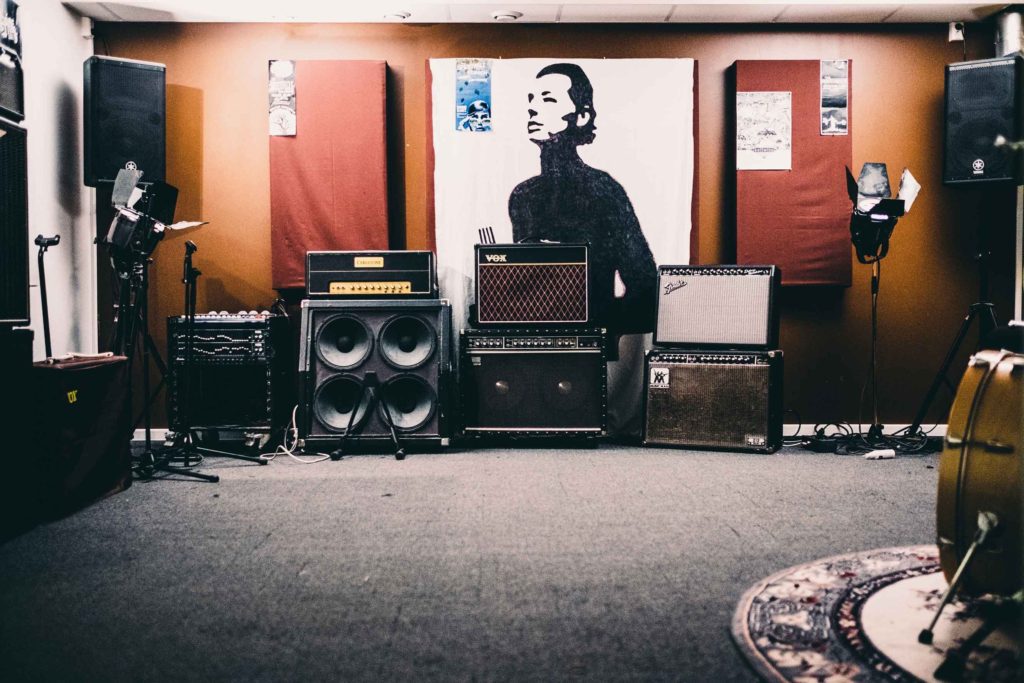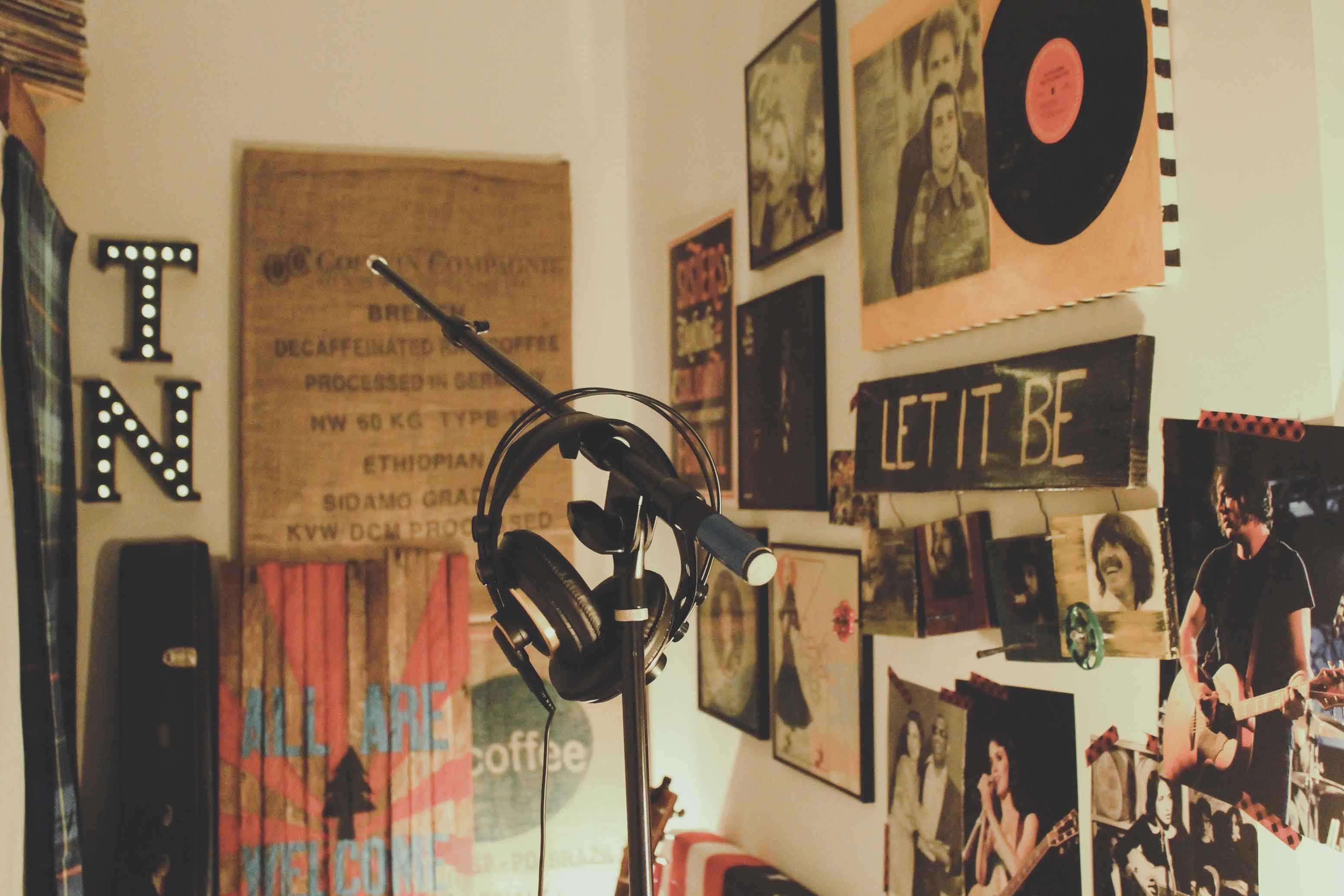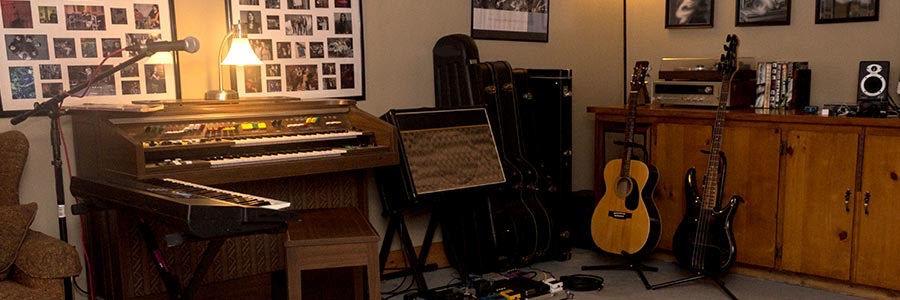
Renting a rehearsal space with your band-mates (and possibly other bands as well) is like renting an apartment with roommates. Find a convenient location that meets the band’s needs, be respectful, and get all the important stuff in writing — including who is responsible for paying the rent and insuring the gear.
Your band may find itself looking for a new space to practice for all kinds of reasons. Maybe the person whose basement you’d been practicing in just had a baby, or is moving away. Or maybe you need to practice on Tuesdays at 10 PM and you’re tired of trying to play guitar quietly to keep the neighbors happy. In any case, your band needs a dedicated place to rock out.
So what should you look for in a practice space? Here are some things to consider:
Considerations for Band Rehearsal Spaces
- Safety and security (deadbolts, overall safe part of town, etc.)
- Reasonable commuting distance for all band members
- Ample parking nearby
- At least one bar or restaurant nearby, for quick food breaks
- Ground floor location for easy load-in (or big, well-functioning elevators)
- Convenient hours, if not 24/7 access
- General cleanliness (doesn’t smell gross, etc.)
- Square footage of your space
- Climate control (both heat and air conditioning)
- Nearby bathrooms
- Plenty of power outlets in your space. Bring a gadget with you to confirm the outlets are properly grounded.
- Decent lighting in your space
- Wi-fi, or at least decent cellphone reception inside. You don’t want your band members trolling Instagram when they’re supposed to be rocking out, but if somebody is running late, you’ll want to be able to call or text without going outside or doing some sort of acrobatic maneuver to get service.
Renting a Converted Practice Space
In my part of New England, many downtowns are dominated by enormous brick mill buildings from the 1800s. Over the last few decades, revitalization projects have turned the old mills into luxury apartments, retail spaces, artist studios, and yes, band practice spaces. They tend to have huge windows, very high ceilings, and a rugged industrial vibe (although some of them are quite posh!). You may have a similar dynamic with whatever kind of architecture is common in your area. In any case, these are buildings that were not built as practice spaces, but have been repurposed.
Any space that is available for rent can theoretically be used as a rehearsal space, as long as the property owner does not object to the noise. You might be able to find office space in an industrial area that would work, or space in a church. Some bands even practice in storage units! Personally I think that would be rather cold and depressing (and I’d be paranoid that some jerk would lock us in!), but if it works for you, go for it. Just don’t pretend that you’re renting the space to store your Christmas decorations and then surprise them with your metal band rehearsal — it will not end well.
Some multi-tenant office spaces are willing to work with bands to make the most out of the time when the businesses are not open. In one of the mills in my town, the tenants of the 3rd floor office suites range from insurance companies to photographers. During the day it’s business as usual, but once 5 or 6 o’clock hits, the workers go home and the musicians roll in. In fact, some of the best sounding drums I’ve heard in the last five years were tracked in the lobby area of this space.
Don’t just start walking around to businesses looking for free access to space — that’s not how it works. You’re asking the owners to take on additional liability, so unless it’s a family member’s business you’re not likely to find someone who will just let you in when they’re not using the space. In my example, the engineer actually has a small rental unit that is used as a control room. So they are a paying tenant — they’re just able to stretch out a bit more after hours, with the landlord’s permission.
Renting a Purpose-Built Practice Space
Some bands may appreciate being in a community with other musicians rather than random tenants of a large commercial building. That kind of setting tends to provide a more creative atmosphere and networking opportunities. For example, if you decide your band needs band photography, you can walk down the hallway and find out who has great images.
If you live in or near a city, you will probably be able to find rehearsal spaces that were designed for the purpose. Recording studios often offer such spaces on an hourly or monthly basis, and not surprisingly their rehearsal rooms tend to be nicer and more expensive than other kinds of spaces. They may also offer relevant amenities, such as equipment you can rent, and they generally have better soundproofing between rooms so that bands playing at the same time cannot hear one another.
If you are using a studio for a rehearsal space, it is important to know the pecking order. Any studio depends on revenue from recording. If you’re dealing with a multi-space facility there’s probably no need to worry, but if you’re using the only tracking room your regular Tuesday night jam session will likely get cancelled if a paying client comes knocking.
You may wonder why would anyone would take this deal if access to the space is not guaranteed. Usually if this is the deal, the rental cost is quite low. The studio just wants to make a little bit of money when there are no sessions booked. So if you’re looking for a good rate and don’t mind your schedule being subject to chance, a rehearsal space in a studio might be right for you.
See the Practice Space in Person
Whatever kind of practice space you consider, make sure you go see it in real life. Basing your decision on photos from the company’s website can backfire. Sometimes photos are cropped in a way that leaves out important information, or the photos used online are not representative of what you’d actually get.
This is especially true for converted buildings, which tend to have a lot of irregular spaces. You might fall in love with an image of a nice rectangular room with a lovely window, only to find that the available space in your price range is an awkward window-less trapezoid with a big pole in the middle.
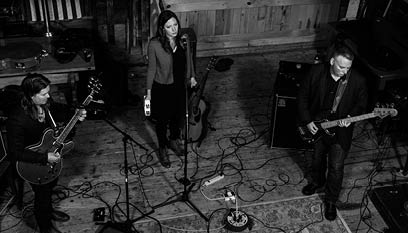
Sharing a Practice Space with Another Band
You may end up sharing a space with another band to save money. This can work out great as long as everyone gets along. It’s basically a roommate situation, so be a good roommate: Be respectful of other people’s stuff, clean up after yourself, and pay your rent on time. Since you are all in bands, be gracious — showing off or talking trash about the other band will not make your band more successful.
Subletting can make the arrangement a bit sketchier, since you may not even know the members of the other band. If you are uncomfortable leaving expensive gear where strangers can access it, I wouldn’t blame you at all! You could use beater gear for practice and keep your nice stuff somewhere else, although that might defeat the point of renting a practice space to begin with.
Legal and Financial Considerations
When you rent a commercial space, you don’t have the same legal protections as you would if you were renting an apartment to live in. There are generally fewer restrictions on the terms of the agreement, including how soon the property owner can kick you out for not paying the rent and how the security deposit works. Some kind of contract will likely be required, so make sure you understand all the fine print before you sign anything. Don’t sublet the space without telling the property manager, because that can get messy down the road if the unofficial subletters flake out.
You should also make sure that everyone in the band understands what their responsibilities are, including how the rent will be divided and who will actually pay it. Ideally, you would be able to cover or at least offset the rent with income from gigs, so the rent would not be a large burden for the individual band members. This is a great opportunity to review the band’s financial set-up. You might want to open a separate bank account for the band, if you haven’t done so already.
Don’t assume that the property owner’s insurance policy covers your stuff — it probably doesn’t. It’s possible you have coverage under whatever insurance you have at home as a homeowner or a renter, so check with your insurance company before looking into a separate policy.
It’s a smart idea to keep records of all of your gear, but especially gear you are gigging with and/or leaving in the rental space. You should include as much information as you can. At the bare minimum, you should have the make, model and serial number of the equipment kept in a spreadsheet. Bonus points if you have photos of the gear that show all of this, as well as any additional identifying characteristics such as blemishes in the finish or modifications you have made (internally or externally) that make your equipment unique.
You should follow similar documentation procedures on any rental space you are using. Years ago my boss and I had to rent a car for a work trip. Before he drove, he walked around the whole car and recorded a video on his phone. I laughed at the time, but the more I thought about it, the more I realized it was a very smart way to protect us and the company should anything have happened.
You should do the same before loading into your space, so any pre-existing damage is documented. This will make it easier for you to get your full security deposit back when you’re done with the space. You should also make a video of the space with your gear fully loaded in as additional documentation in the event of theft or damage from sprinklers.
Still, though, you should confirm that you have adequate insurance. These photos and documentation only really matter if your equipment is covered.
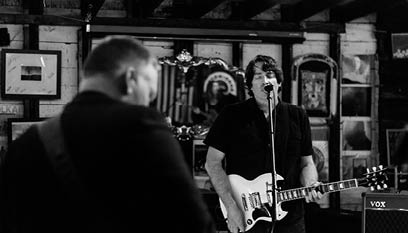
Creating Your Own Practice Space
Renting a practice space is not necessarily your only option. One alternative is to turn an unused space that a band member owns, like a barn or a garage, into a rehearsal space. This will likely involve some renovation work, such as adding a heat source (or cooling depending on your local climate) if the space is not already heated/cooled and taking some measures to soundproof. For example, you may want to replace any hollow doors with solid doors, and add some insulation. For more information about this, check out “Soundproofing the Small Studio” from Sonic Scoop.
Whatever you do though, don’t focus all your energy on soundproofing and forget about climate control. If your space is too hot or too cold to play and to safely store gear, you may as well not have it.
Doing this right probably won’t be cheap, and could involve making permanent changes to the building. It only makes sense if the band is pretty serious and thinking long-term.
It’s possible that a musician in your circle has already turned their garage or barn into a viable practice space. In that case, you should absolutely ask about using the space for a small fee. It could end up being a win-win for everyone!
So now that you have your space, what should you put in it?
Furnishing Your Rehearsal Space
It’s time to make yourself at home! Here are some things you could consider adding to your space, besides the drum kit and all the other gear. If you want a cheat sheet to specific recommendations for your practice space check out my Recommended Practice Space Accessories.
- Mini fridge for drinks (a good distance from your equipment to reduce the chance that liquids will get spilled on gear)
- Comfortable chairs, a couch, or a futon, to help absorb sound as well as provide a comfortable place for band meetings
- Any decor items that help create the right atmosphere, like gig posters and other artwork. You could add some incense if you’re into that.
- Lighting. Most spaces come with stock white fluorescent lighting, which is bad for the soul and kills the creative vibe. You’d be amazed what a difference a few colored light bulbs can make
- Area rugs or carpet remnants to absorb some sound and warm up cold floors
- A whiteboard for working on lyrics or setlists
- Extra supplies (strings, picks, sticks, cables, etc.) so you don’t have to stop rehearsing to buy more
- PA! That may be the most important thing. Everyone usually has their own gear, but somehow mics, amp, mixer, and speakers have to appear for a full-band rehearsal to be truly effective.
- Don’t forget your amp stand and your hearing protection.

